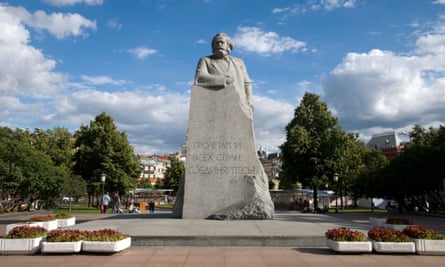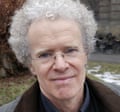As long as there have been people who called themselves socialists, there have been people arguing about what socialism is. Socialism is a large, fractious family. Many of its members are not on speaking terms, or have a history of killing one another. Meltdowns are common. Differences of opinion that may seem microscopic to outsiders often serve as the basis for centuries-long shouting matches. Yet even in the most dysfunctional family, there are certain resemblances. Whether Fabian or Maoist, Eurocommunist or anarcho-syndicalist, socialists share the desire to create a world without capitalism.
What would such a world look like? And how might we get from here to there? Until recently, very few people in the US and the UK were interested in debating these questions. Socialist movements were in deep retreat. The possibility of a world without capitalism seemed preposterous. In recent years, this possibility has started to look less preposterous. New leftwing momentum in both countries, propelled by popular upheavals and the campaigns of politicians such as Bernie Sanders and Jeremy Corbyn, has put socialist ideas back into circulation. Poll after poll demonstrates the rising popularity of the term. Forty per cent of Americans now say they would rather live in a socialist country than a capitalist one.
One could ask what the respondents mean by socialism – but this is always the question. Competing answers are currently being hashed out in spaces large and small: presidential campaign speeches, Twitter threads, big newspapers, little magazines. Now an important contribution to the conversation has arrived in the form of a new book by the recently deceased Erik Olin Wright, one of America’s best known and most beloved Marxist intellectuals.
How to Be an Anticapitalist in the 21st Century deserves to be widely read. In 150-odd pages, Wright makes the case for what’s wrong with capitalism, what would be better, and how to achieve it. This is the rare book that can speak to both the faithful and the unconverted. You could buy it for your sceptical uncle or your militant cousin: there is something here for the reader who needs persuading that another world is possible, and the reader who wants ideas for bringing that world into being.

Wright writes with an unusual combination of clarity, depth and warmth. He engages generously with opposing arguments. He acknowledges difficulty and complexity. He exudes a democratic respect for his reader. Democracy, in fact, is the essence of his socialism. For him, a just society would enact democracy in its deepest sense. He wants a world where everyone has access to the “material and social means necessary to live a flourishing life” and the opportunity “to participate meaningfully in decisions about things that affect their lives”. Capitalism, he argues, prevents us from creating such a world. So he proposes a two-pronged plan for “eroding” it, using the state to shrink capitalism from above while cultivating democratic structures of social ownership from below.
Some of the particulars are more persuasive than others – I don’t share his enthusiasm for universal basic income – but the overall strategy is appealing. It’s an ecumenical approach to social transformation, one in which everyone has a role to play. Those with a more social-democratic sensibility can canvass for candidates and ballot measures; labour-minded people can build unions and worker co-ops; anarchists can run free clinics and community kitchens.
Wright thus brings the warring factions of the socialist family together and sets them to work towards the same goal. He stresses that this goal can’t be precisely known in advance: the specific contours of a socialist society must emerge from democratic experimentation. The “fundamental strategic problem”, he writes, is “how to create the conditions in which sustained democratic experimentalism is possible”. His pluralism is designed to foster those conditions, by seeding new sites of collective decision-making within the cracks of capitalist society.
Yet there is one method that Wright pointedly excludes: revolution, or what he calls “ruptural transformation”. He foresees a gradual transition, not a sharp break. Rupture is too risky, he warns: it never results in “the creation of a democratic, egalitarian, emancipatory alternative”. For evidence, he points to the revolutions of the past. The past is a humbling place for Marxists. While some of the revolutions made in Marx’s name resulted in real achievements, others led to totalitarianisms and atrocities. All failed to “produce the kind of new world envisioned in revolutionary ideology”, as Wright puts it.
The crisis of 20th-century Marxism didn’t just occur at the level of practice, however, but at the level of theory. In the years after Marx’s death, a particular packaging of his ideas had grown dominant under the influence of Friedrich Engels and others. It took a mechanistic view of social dynamics and a deterministic view of historical ones. This crude machinery became synonymous with Marxism in the late 19th century, then cracked under the weight of the 20th, as history unfolded in directions that the old dogmas couldn’t explain. And as Marxism became the official ideology of communist states, it deteriorated further, becoming a devotional relic in a mausoleum, like Lenin’s embalmed corpse.
Different thinkers attempted to resolve this crisis in different ways. Some returned to Marx’s texts to develop new readings of his work. Others borrowed techniques from the mainstream social sciences and analytical philosophy to reconstruct Marxism on what they believed to be a more empirical basis. These were the analytical Marxists, and this was the tradition to which Wright belonged.
The analytical Marxists were famous for discarding large chunks of Marxism that didn’t meet their standards for scientific rigour – “no-bullshit Marxism”, they called their approach. The philosopher GA Cohen, a founder of the school, claimed that Marxism would emerge stronger for “having gone through the corrosive acid of analysis”. But the acid of the analytical Marxists was often so corrosive that not much Marxism remained afterwards.

The influence of analytical Marxism can be felt throughout Wright’s book. And, like his colleagues, he arrives at some very unorthodox conclusions, most crucially on the question of class. Class is a subject he knew extremely well: he devoted much of his career to examining its complexities. Here, he concludes that those complexities make class an unsuitable edifice on which to build a socialist movement. In his view, the working class has become too fragmented to play the historic role that Marxism traditionally assigns it. Rather, socialism must be an ethical project. Class is less important than a shared commitment to moral values.
It’s a debatable point, particularly in our present moment. Class is indeed a complicated phenomenon, and Wright’s own scholarship is indispensable for interpreting it. Yet this hasn’t prevented a new class politics from taking shape in recent years. In 2018, more US workers engaged in work stoppages than in any year since 1986. Teacher strikes in several states have helped to nurture a new mood of militancy, while leaders of the working class, such as Alexandria Ocasio-Cortez, are speaking the language of class on the national stage.
This isn’t enough to make socialism, but it suggests that class struggle is far from a spent force. The critical question in the coming years will be how to intensify that struggle before capitalism takes us off a cliff. Climate crisis is discussed only briefly in Wright’s book, but it presents the single largest obstacle to pursuing his slow road to socialism: we may not have the time. While Wright correctly calls our attention to the dangers of rupture, something like rupture may be the least dangerous option for the planet and most of the people living on it.
The challenge will be to avoid replaying the nightmares of the 20th century while facing down the nightmares of the 21st. Wright’s final book embodies the qualities we will need to make it through with our habitat and humanity intact: a clear mind, a generous spirit and a faith in the capacity of people to govern themselves.
How to Be an Anticapitalist in the Twenty-First Century by Erik Olin Wright (Verso Books, £12.99). To order a copy go to guardianbookshop.com. Free UK p&p on all online orders over £15.
